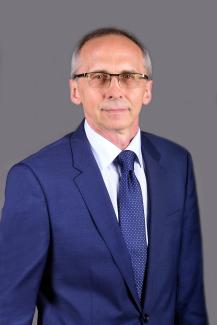What are the benefits to the academic community in our participation in this initiative?
We can define them in several fields. It is primarily a gradual reduction in energy consumption through the implementation of modern technologies, but also raising the climate awareness of the university community. Less consumption of electricity and heat, which is very expensive today, means less strain on the university's budget and reduced climate costs through reduced greenhouse gas emissions into the atmosphere. The money saved will be able to be used to better compensate university employees, invest in the development of research infrastructure and build a green university campus.
More than 1,100 higher education institutions are participating in the Race to Zero campaign, including three universities from Poland: Warsaw University, Lodz University of Technology and Wroclaw University of Environmental and Life Sciences. We co-operate with institutions: Alliance for Sustainability Leadership in Education (EAUC), Second Nature and UN Environment.
Lodz University of Technology plans to achieve the Net-Zero Target in 2050, while the intermediate target of reducing the carbon footprint by 50% from its current value in 2030. How do we do it?
We still have as much as, and at the same time only six years until 2030. As a matter of urgency, we developed an action plan for TUL Race to Zero campaign, which we made available on the university's website. In the document, we defined 10 areas for our activities. I encourage you to review this plan and take initiatives to further improve it. In 2022, we have initiated many activities in support of sustainability goals, including monitoring the university's carbon footprint, building photovoltaic installations, launching electric car charging stations, upgrading lighting on the university's campus, a passive building has been commissioned, and more buildings are undergoing thermal upgrades. We summarized these activities in our Race to Zero Campaign report. Here I extend my thanks to all those involved in these activities, especially the staff of the University's Chancellor's Administration and Development Department.
There is a lot of talk about a green campus. Could you elaborate on the environmentally friendly solutions in it?
You've probably already noticed our attention to the grounds of both university campuses and the streets connecting them, which we are systematically transforming into increasingly green woonerfs. Another such solution will be built on Skorupki Street and will also be built this year with funds from the Civic Budget. In successive editions of the university's Idea Box project, initiatives showing our care for nature are winning. Examples of projects in this year's 7th edition include: Trees planting on the TUL campus, Rain for plants instead of in the sewer, Solar benches for charging mobile devices and Animal welfare on the TUL campus. We are also making efforts to build a green campus requiring much more funding. These include approved projects to build photovoltaic installations with funds from the provincial Environmental Protection Fund. We are also the coordinator of the Lodz Energy Wave Cluster, which the City of Lodz joined this year. Cooperation between the university, business and the city creates opportunities for effective energy management, with a particular focus on renewable energy. We plan to drill geothermal wells. My little dream is to install covered parking spaces in front of the Sports Bay, made of solar panels. On a micro scale, we will be testing this solution in parking lots under construction for bicycles, including bicycles and electric scooters.
Creating environmental awareness is one of the goals of our activities. How is it done inside and outside TUL?
Lodz University of Technology has had a Team for Sustainable Development for more than two years, which I have the pleasure of chairing. On its initiative, a section of the TUL website dedicated to this topic was created. We post news, plans and reports, including on the Race to Zero campaign. We have just announced the second edition of the survey, which will allow us to assess the degree of awareness and commitment of the TUL academic community to the Sustainable Development Goals. The reports developed have allowed us to improve our ranking positions in a number of international university rankings, including THE Times Higher Education. TUL is also continuing several years of initiatives related to the topic of sustainability, such as the "Ecologically with TUL" interview series. Our employees organize and participate in conferences and forums on climate issues. For example, at the "Third Forum for Business and Sustainable Development - Lodz 2022" we organized a debate under the theme: "RES + Smart Energy Management = Energy Independence?". On the other hand, this year, TUL employees participated in great numbers in the International Congress on Energy Regeneration of Cities held at EC1 Lodz.
It is also worth boasting about the successes of our scientific circles such as the already famous Lodz Solar Team or GUST, which this year won the finals of the International Small Wind Turbine Contest. In both circles, it is necessary to appreciate the effective cooperation of students and mentors from different departments of Lodz University of Technology. Above all, such interdisciplinary efforts count the most in solving the challenges posed by the Sustainable Development Goals.
Interview by: Agnieszka Garcarek-Sikorska


